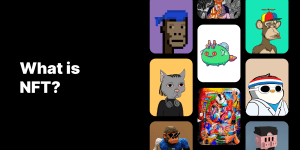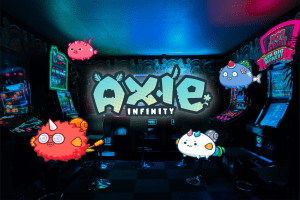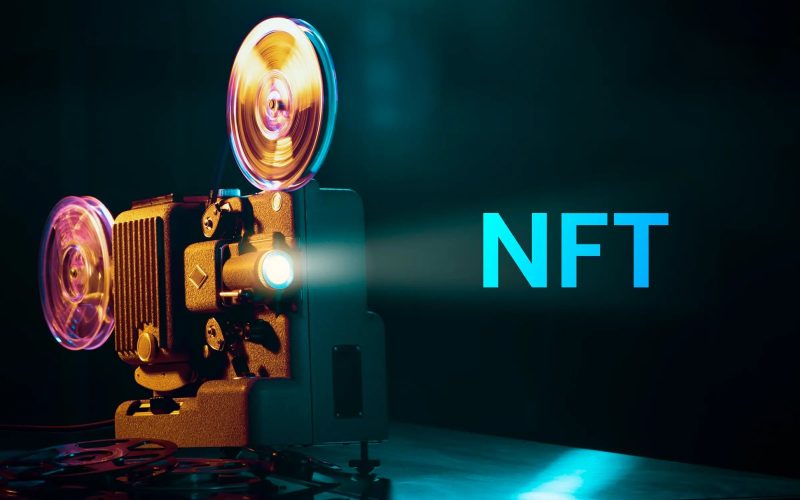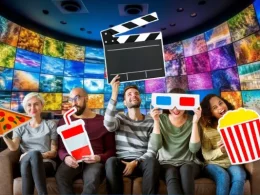Introduction
In the rapidly evolving digital landscape, one of the most significant innovations to emerge in recent years is the concept of Non-Fungible Tokens (NFTs). While the term “NFT” might have seemed obscure a few years ago, it has now become a buzzword in various industries, particularly in the entertainment sector. NFTs are revolutionizing the way we experience and interact with entertainment, offering unprecedented opportunities for creators and consumers alike. This article delves into the transformative impact of NFTs on the entertainment industry, exploring their potential, current applications, and future prospects.
What Are NFTs?

Before diving into their impact on entertainment, it’s essential to understand what NFTs are. Non-Fungible Tokens are unique digital assets verified using blockchain technology. Unlike cryptocurrencies such as Bitcoin or Ethereum, which are fungible and can be exchanged on a one-to-one basis, NFTs are unique and cannot be exchanged on a like-for-like basis. Each NFT has a distinct value and specific information that sets it apart from other tokens.
Key Characteristics of NFTs
- Uniqueness: Each NFT has a unique identifier that distinguishes it from other tokens.
- Ownership: NFTs provide verifiable proof of ownership, making it easy to track the original creator and subsequent owners.
- Indivisibility: Unlike cryptocurrencies, NFTs cannot be divided into smaller units. Each NFT is a whole entity.
- Interoperability: NFTs can be used across various platforms and applications, thanks to standardized protocols.
How NFTs Are Transforming Entertainment
1. Digital Art and Collectibles

One of the earliest and most prominent uses of NFTs is in the realm of digital art and collectibles. Artists can create digital artworks and mint them as NFTs, providing a new avenue for monetization. Collectors, on the other hand, can purchase these NFTs, gaining ownership of unique digital pieces.
Case Study: Beeple’s “Everydays: The First 5000 Days”
In March 2021, digital artist Beeple made headlines when his NFT artwork “Everydays: The First 5000 Days” sold for $69 million at a Christie’s auction. This event highlighted the potential of NFTs to revolutionize the art world, offering artists new ways to reach global audiences and monetize their work.
2. Music Industry

NFTs are also making waves in the music industry. Musicians can mint their songs, albums, and even concert tickets as NFTs, providing fans with exclusive access and ownership. This approach not only helps artists earn revenue but also fosters a deeper connection with their audience.
Case Study: Kings of Leon’s NFT Album
In March 2021, the rock band Kings of Leon released their album “When You See Yourself” as an NFT. The album included special perks such as exclusive audiovisual art, limited-edition vinyl, and front-row concert tickets. This innovative approach demonstrated how NFTs could offer fans unique experiences while providing artists with new revenue streams.
3. Film and Television

The film and television industry is also exploring the potential of NFTs. Filmmakers can tokenize their movies, offering fans exclusive content, behind-the-scenes footage, and even ownership stakes in the project. This model can help fund independent films and provide fans with a more immersive experience.
Case Study: “Zero Contact” Film
In 2021, the film “Zero Contact,” starring Anthony Hopkins, was released as an NFT. The film was distributed through an NFT marketplace, allowing fans to purchase and own a piece of the movie. This approach showcased how NFTs could disrupt traditional film distribution models and offer new opportunities for filmmakers.
4. Gaming

The gaming industry has been quick to adopt NFTs, leveraging their potential to create unique in-game assets. Players can buy, sell, and trade NFT-based items, such as characters, weapons, and skins, across different games and platforms. This interoperability enhances the gaming experience and creates new revenue streams for developers.
Case Study: Axie Infinity
Axie Infinity is a blockchain-based game that allows players to collect, breed, and battle fantasy creatures called Axies. Each Axie is an NFT, and players can trade them on various marketplaces. The game’s success has demonstrated the potential of NFTs to create vibrant in-game economies and foster player engagement.
5. Virtual Realities and Metaverses

NFTs are playing a crucial role in the development of virtual realities and metaverses. These digital worlds allow users to interact, socialize, and create content. NFTs enable the ownership and trade of virtual land, properties, and other assets within these metaverses, creating new opportunities for investment and creativity.
Case Study: Decentraland
Decentraland is a virtual world where users can buy, sell, and build on virtual land parcels, each represented as an NFT. This platform has attracted significant attention and investment, highlighting the potential of NFTs to create new digital economies and reshape the concept of virtual real estate.
The Future of NFTs in Entertainment

While NFTs have already made a significant impact on the entertainment industry, their potential is far from fully realized. As technology continues to evolve, we can expect to see even more innovative applications of NFTs, such as:
- Enhanced Fan Engagement: NFTs can offer fans exclusive access to content, experiences, and merchandise, fostering a deeper connection with their favorite artists and creators.
- New Revenue Streams: NFTs provide creators with new ways to monetize their work, from digital art and music to films and virtual experiences.
- Decentralized Platforms: The rise of decentralized platforms and marketplaces will empower creators and consumers, reducing the reliance on traditional intermediaries.
- Interoperable Ecosystems: As NFT standards become more established, we can expect greater interoperability between different platforms and applications, enhancing the overall user experience.
Conclusion
NFTs are undoubtedly changing the way we experience entertainment, offering new opportunities for creators and consumers alike. From digital art and music to gaming and virtual realities, NFTs are revolutionizing the industry, providing unique experiences and fostering deeper connections between artists and fans. As technology continues to advance, the potential of NFTs in entertainment is limitless, promising an exciting future for all involved.
In summary, NFTs are not just a passing trend but a transformative force that is reshaping the entertainment landscape. By embracing this technology, the industry can unlock new possibilities and create a more inclusive, engaging, and dynamic entertainment ecosystem.












